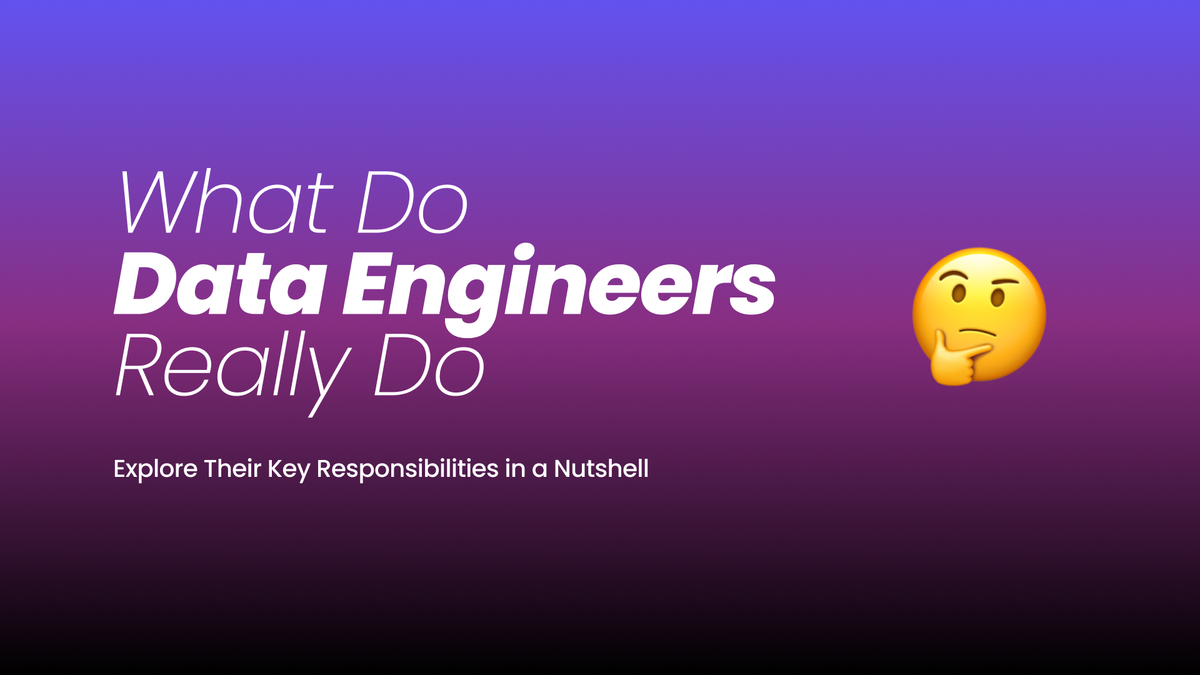What is Data Engineering?

When one encounters the term "data engineering," it might conjure images of individuals immersed in code, navigating complex databases, and meticulously organizing spreadsheets. While these elements are integral, data engineering encompasses a far more expansive and dynamic domain. It serves as the foundational backbone of the data-driven world, orchestrating the seamless flow and transformation of information that powers modern enterprises.
Understanding Data Engineering
Consider attending a symphony where the music resonates flawlessly. Behind this harmonious performance lies a team of sound engineers, stage managers, and technicians ensuring every note is pitch-perfect. Similarly, data engineers operate behind the scenes, constructing and maintaining the infrastructure that allows data to be collected, stored, processed, and accessed efficiently. They design and implement systems that transform raw data into structured formats, enabling organizations to derive meaningful insights and make informed decisions.
The Data Engineer's Toolkit
Data engineers employ a diverse array of tools and technologies to manage and manipulate data effectively:
- ETL Pipelines (Extract, Transform, Load): These pipelines are the conduits through which data flows from various sources into centralized repositories. Data engineers design ETL processes to extract data, transform it into usable formats, and load it into databases or data warehouses.
- Databases: Proficiency in both relational (SQL) and non-relational (NoSQL) databases is essential. Data engineers ensure that data storage solutions are optimized for performance, scalability, and reliability.
- Data Lakes and Warehouses: Depending on the nature and volume of data, engineers decide between data lakes, which store vast amounts of raw data, and data warehouses, which house structured and processed data for analysis.
- Cloud Infrastructure: Familiarity with cloud platforms such as AWS, Google Cloud, and Azure is crucial. Data engineers leverage cloud services to build scalable and flexible data solutions that cater to the evolving needs of organizations.
Navigating the Landscape of Big Data
In today's digital age, organizations grapple with massive volumes of data generated at unprecedented speeds. Data engineers rise to this challenge by implementing robust systems capable of handling big data. They utilize distributed computing frameworks and parallel processing techniques to manage and analyze large datasets, ensuring that valuable information is not lost in the deluge.
Transforming Data into Actionable Insights
The ultimate objective of data engineering is to render data accessible and meaningful. By cleansing, organizing, and structuring data, engineers empower data scientists and analysts to perform in-depth analyses, develop predictive models, and uncover trends. This collaborative synergy enables businesses to innovate, optimize operations, and deliver enhanced value to customers.
The Ever-Evolving Role of Data Engineers
Data engineering is a dynamic field characterized by continuous learning and adaptation. As technology advances and data sources diversify, engineers must stay abreast of emerging tools, methodologies, and best practices. Their role is pivotal in ensuring that data ecosystems remain robust, secure, and capable of supporting the analytical endeavors of organizations.
Conclusion: The Unsung Architects of the Data World
While data engineers may not always be in the spotlight, their contributions are indispensable. They are the architects who design the frameworks that underpin data-driven decision-making. Their meticulous work ensures that data flows seamlessly, remains accurate, and is readily available for analysis. In a world increasingly reliant on data, the expertise and dedication of data engineers are the cornerstones of progress and innovation.
